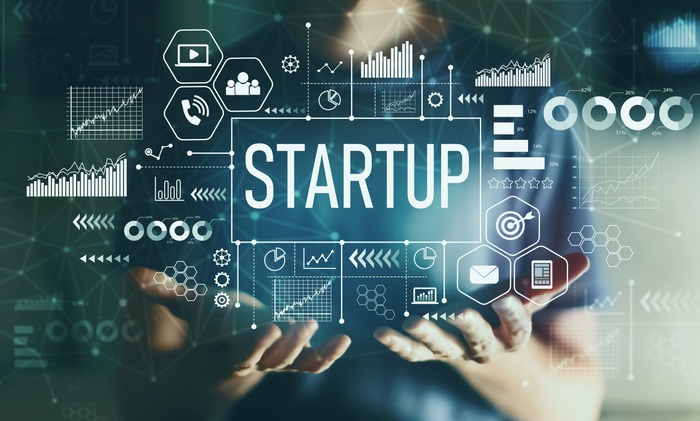Women founders call for inclusion as investors tighten purse strings
Female startups in Nigeria are sounding the alarm over deep-rooted inequities in access to capital, warning that structural barriers are stifling innovation and slowing economic growth.
Despite leading more than 380 ventures across vital sectors such as agritech, health tech, and digital finance, women founders remain on the margins of the funding ecosystem.
The funding gap between female-led startups and their male counterparts remains one of the starkest realities in Africa’s tech ecosystem. In 2024, female CEOs received just two percent of total funding—$48 million (excluding exits), compared with nearly $2.2 billion secured by male CEOs, according to ‘Africa: The Big Deal.’
While overall tech funding on the continent declined – dropping 25 percent to $2.9 billion in 2023 and down further from $4.6 billion in 2022 – the squeeze has been especially brutal for women. Their share fell from 8.2 percent in 2023 and 2.8 percent in 2022, to just two percent in 2024, the lowest level since 2016 and well below the 10-year average of three percent, as tracked by the Briter Africa Investment Report and Disrupt Africa.
The long-term picture is equally sobering. Between 2013 and 2021, less than five percent of the $12.6 billion raised by African tech startups went to all-female founding teams, compared with 82 percent flowing to all-male teams.
Read also: Nigeria’s 22 startups in Africa’s top 100
In Nigeria, the imbalance is even more pronounced. From 2019 to 2023, only 10 percent of funded startups were female-founded, and together they secured a meagre 0.7 percent of the country’s $600 million deal volume, according to Briter Africa.
Across the continent, Africa: The Big Deal reports that 84 of the top 100 most-funded startups are all-male founded, with just three female CEOs among them.
For women founders, these figures are not just statistics but lived realities. Many recount investors questioning their commitment due to family responsibilities, or dismissing their businesses as too risky. The result is a climate where talented entrepreneurs are excluded from the capital that fuels scale and impact.
Vicky Oluwaseun, a manufacturer of paint in Lagos, told BusinessDay: “Sometimes, the hardest part is not building the business, it is figuring out where to even go for funding. The banks demand collateral we don’t have, investors don’t take us seriously, and you are left in limbo wondering if you should just give up.”
“I walked into three different banks with my agritech business plan, and every single one asked for collateral I couldn’t possibly provide. It didn’t matter that my numbers showed steady growth. They looked at me as a woman first, and a business owner second,” lamented Oghenekome Efe, a founder of a small-scale farm-to-market venture in Delta State.
For others, the hardest part is simply knowing where to start. Chidinma Okoro, a nylon manufacturer, explained: “Sometimes, you don’t even know where to go. The big investors feel out of reach, and the local banks treat us like we are asking for favours. You end up stuck in limbo, with no clear path to capital.”
Ola Brown, founder of HealthCap Africa, stated, “I can’t believe people honestly think in the political & business spheres in Nigeria today women get more opportunities than men. Female founders receive less than five percent of venture capital money. Research from the World Bank shows how commercial banks actively discriminate against women.”
At the third Gender Impact Investment Summit in Lagos, Muhammad Sanusi II, the Khalifa of the Tijjaniya group in Nigeria, reiterated his long-standing advocacy for structural reforms to dismantle entrenched barriers against women in finance and governance.
“Gender equality is not about sentiment or tokenism; it is about market discipline and national progress. If Nigeria is serious about inclusive growth, we must enforce gender quotas across politics, financial services, and enterprise leadership. The privileges of a male-dominated world must give way to equity, merit, and fairness,” Sanusi noted.
For Sanusi II, the task ahead is clear. “We have talked long enough about gender inclusion. The time for imagined barriers is over. With this roadmap, we must move from rhetoric to results.”
It is against this backdrop that stakeholders unveiled the $8 billion Gender Equity and Social Inclusion (GESI) Roadmap 2025–2035, a 10-year plan developed by the Impact Investors Foundation (IIF) and PwC Nigeria. The roadmap seeks to mobilise inclusive capital through five pillars, including the creation of 40 innovative financial products for women, youth, and persons with disabilities (PwDs), the enforcement of 20 new policies to ensure equity in lending and payments, and achieving 90 percent adoption of GESI principles among investors.
Jessica Espinoza, CEO of 2X Global, a global industry body for gender lens investing, delivered a powerful keynote address, stressing the need for intentional action: “Progress is strategic, not accidental, which is why the GESI roadmap is a critical blueprint for Nigeria’s future. It’s a vital framework for intentionally dismantling financial barriers, empowering women, youth, and people with disabilities, and unlocking the nation’s full economic potential.”
Jumoke Oduwole, minister of Industry, Trade, and Investment, recently announced a $50 million initiative to support women-led digital enterprises under the WEIDE program, describing it as a game-changer for Nigeria’s entrepreneurial future. “When they scale, our economy stabilises,” she noted.

